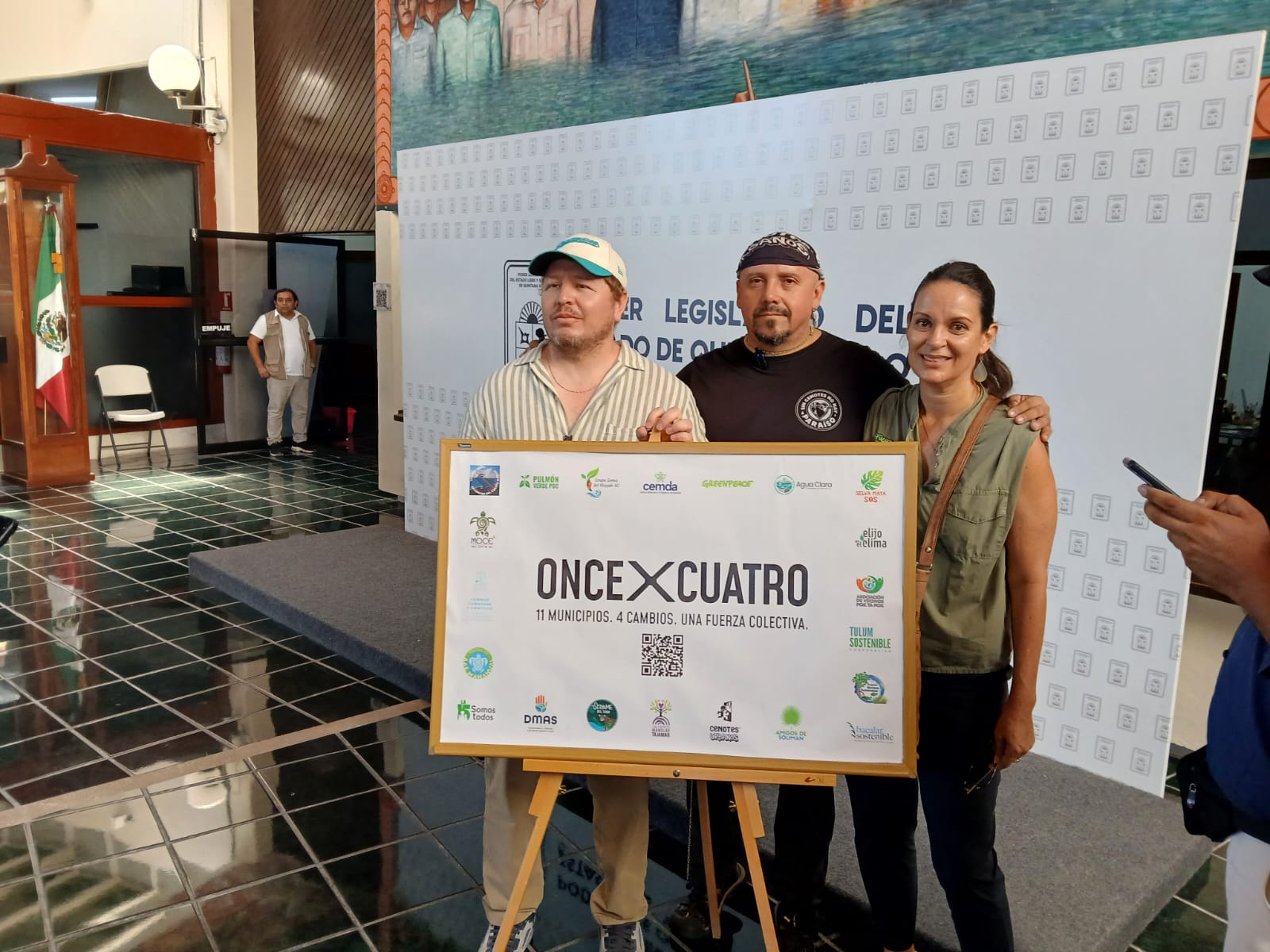CHETUMAL — The Congress of Quintana Roo has formally accepted the citizen-led initiatives known as the Solimán Law and the Sustainable Mobility Law for legislative review. These two proposals are part of the "Once por Cuatro" (Eleven for Four) package promoted by citizens from all municipalities in the state and the civil associations Defendiendo el Derecho a un Medio Ambiente Santo (DMAS), Centro Mexicano de Derecho Ambiental (Cemda), and Cenotes Urbanos.
These are the first two initiatives of the four presented since May 6 of this year to move forward in the legislative process. They first had to pass a review of requirements to verify they complied with the state's Citizen Participation Law. All four initiatives received a ruling of compliance with the formalities of the Citizen Participation Law on July 8 from the State Congress's Commission for Anti-Corruption, Citizen Participation, and Autonomous Organs, but only the two mentioned have now been admitted for study and analysis.
The Solimán Law: Linking Urban Development and Penal Codes
The so-called Solimán Law is a reform initiative that seeks to link the Law of Human Settlements, Territorial Planning, and Urban Development with the Penal Code. It also proposes modifications to the state's Law of Urban Actions. The objective is to formally recognize the importance and consequences of crimes against urban development, specifying the omissions and actions that should be included as offenses due to their impact on urban development and the environment for the residents of Quintana Roo.
The proposal demands that crimes against urban development specify sanctions for both developers and public servants who commit them, including prison sentences of four to six years. These penalties would apply for lack of supervision, failure to pay required bonds, and, most notably, for developments built without permits or environmental impact studies, as well as for the commercialization, sale, or rental of properties in areas where construction is prohibited or without the proper authorizations.
When the initiative was presented, representatives from DMAS, Cemda, and Cenotes Urbanos explained that its origin lies in the case of the Adamar condominium in Solimán Bay, in the municipality of Tulum. This development was being marketed despite being constructed without environmental permits. DMAS denounced these actions, leading the Federal Attorney for Environmental Protection (Profepa) to shut down the construction. A federal judge also ordered the State Congress to correct the Penal Code to establish a penalty for the crime of advertising a real estate development without authorizations—a sanction that had been omitted due to a serious error when the criminal offense was originally created.
The initiative also establishes precise terms for extensions and deadlines, requiring that infrastructure and urbanization works be handed over to municipal authorities if the deadlines agreed upon in the approved projects are not met. Contravention would be considered a crime as stipulated in the Penal Code.
Furthermore, it proposes that municipalization processes can be initiated by the authorities, even without a citizen complaint, when developers of subdivisions are found to be in violation of the law, in addition to enforcing the collection of bonds from them. It also seeks to enable private individuals to demand indemnification for damages to their property and rights resulting from government resolutions in matters of urban actions, when those resolutions are the result of irregular administrative activities by state or municipal public entities.
The Sustainable Mobility Law: Prioritizing Pedestrians and Clean Transport
The other initiative accepted today, called the Sustainable Mobility Law, proposes a reform to the Law of Human Settlements, Territorial Planning, and Urban Development. Its goal is to obligate the state and municipalities to have mobility plans in place before approving urban planning instruments, ensuring that such instruments consider mobility in the assigned land uses.
With this modification, the initiative seeks to ensure that urban development programs and subdivisions or real estate developments contain mobility plans that prioritize pedestrians, as well as clean, equitable mass transport with adequate routes. The aim is to increase the efficiency and safety of travel for residents.
Discover more from Riviera Maya News & Events
Subscribe to get the latest posts sent to your email.
